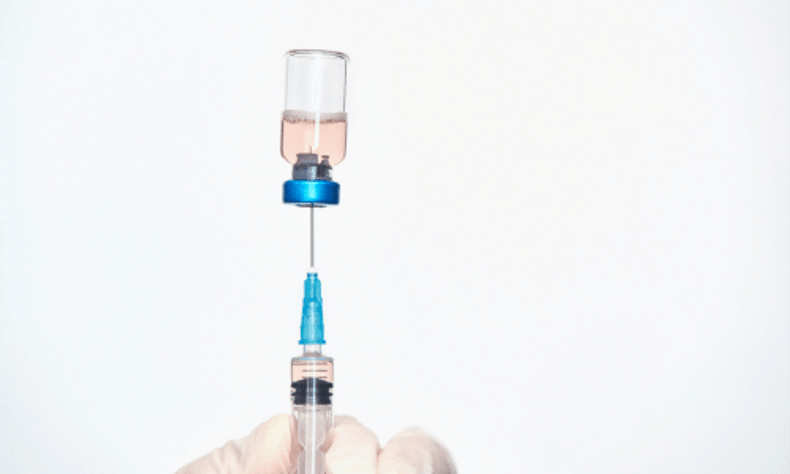When it comes to managing your health at home, having the right tools is just as important as the medication you’re using. Whether you're administering insulin for diabetes, allergy shots, or any other type of injection, the syringe you choose plays a crucial role in your overall health and comfort. In this post, we’ll explore why choosing high-quality syringes is essential for your health journey and how investing in the best tools can enhance comfort, accuracy, and safety.
The Importance of Quality Syringes
Not all syringes are created equal, and the differences between a high-quality syringe and a lower-quality option can have a significant impact on your injection experience. Here's why the quality of your syringe matters:
-
Comfort During Injections:
One of the biggest factors in choosing a syringe is comfort. Lower-quality syringes often have thicker needles or rougher surfaces, which can lead to more pain or discomfort during an injection. High-quality syringes, on the other hand, are designed with finer, smoother needles that cause minimal discomfort, making it easier to administer your injection without the unnecessary pain.
Needles in quality syringes are often coated with materials like silicone to ensure they glide more smoothly into the skin, reducing friction. This can result in a more comfortable experience, particularly if you're using syringes regularly for at-home injections.
-
Accuracy and Dosing Precision
When it comes to medication, accuracy is key. A high-quality syringe ensures that you can administer the correct dosage with precision every time. Cheaper syringes might have poorly calibrated markings, which could lead to inaccuracies in dosing. With high-quality syringes, the markings are usually clearer and more consistent, allowing you to measure your medication with confidence and avoid any potential errors.
In conditions like diabetes, where insulin dosing must be precise, ensuring that your syringe is accurate is paramount to managing your health effectively.
-
Needle Safety and Durability
Needle safety is another essential aspect of syringe quality. A poor-quality syringe may have a weaker or poorly designed needle that could bend or break during injection. This increases the risk of injury or contamination, making proper disposal more difficult. High-quality syringes are manufactured with durability in mind, ensuring that the needle remains intact throughout the injection process, minimizing risk, and improving overall safety.
Syringes made from quality materials are also less likely to have defects such as dull needles, which could lead to unnecessary pain or complications. By choosing high-quality syringes, you're not only protecting your comfort but also your safety.
-
Reduced Risk of Contamination
Quality syringes are manufactured in sterile conditions and are individually sealed, ensuring that the syringe remains free of contaminants. This helps reduce the risk of infections or other complications that could arise from using an unsterile syringe. Lower-quality syringes might not be sealed as carefully, increasing the risk of contamination during handling or storage.
-
Cost-Effectiveness in the Long Run
Although high-quality syringes may cost a bit more upfront, they can be a more cost-effective choice in the long run. With better performance, fewer complications, and greater accuracy, you may find that you need fewer syringes to administer your injections correctly. Additionally, investing in a high-quality syringe can reduce the risk of problems like infections or unnecessary pain, which could end up costing you more in medical treatment down the line.
How to Choose the Right Syringe for Your Needs
With so many options available, it can be difficult to know which syringe is right for you. Here are a few factors to consider when selecting the best syringe for your health needs:
-
Needle Length and Gauge
The needle length and gauge (thickness) are crucial in determining both comfort and effectiveness. Generally, shorter needles (around 4mm–6mm) are ideal for subcutaneous injections, while longer needles (8mm–12mm) may be needed for intramuscular injections. A finer gauge (higher number) means a thinner needle, which is generally more comfortable.
Your healthcare provider can guide you on the appropriate length and gauge for your specific treatment.
-
Syringe Capacity
Syringes come in various sizes, from 0.3 mL to 10 mL, depending on your medication dosage needs. For example, those using insulin typically require syringes with smaller volumes (0.3 mL, 0.5 mL, or 1 mL), while other medications might require larger syringes. Make sure the syringe you choose can hold the correct amount of medication without excessive waste.
-
Comfort Features
High-quality syringes often come with additional features designed to enhance comfort. Some syringes feature ergonomic grips, making them easier to hold and control during injection. Others might come with safety features, such as automatic needle retractors or protective covers, to prevent accidental needle sticks and ensure safe disposal.
-
Sterility and Packaging
Check for syringes that come in individually sealed, sterile packaging. This is essential to avoid any potential contamination. Even if a syringe is high-quality, it won’t be effective if it’s not properly sealed and sterile.
Invest in Your Health with the Right Syringe
Choosing the right syringe can make a significant difference in your health and overall well-being. When you invest in high-quality syringes, you’re not just improving your comfort during injections—you’re also ensuring safety, accuracy, and the long-term effectiveness of your treatment. By considering factors like needle safety, size, and comfort, you can select the best syringe for your needs and feel confident that you're giving yourself the best chance for success in managing your health at home.
Remember to always consult your healthcare provider for guidance on syringe selection to ensure that you’re choosing the right tool for your unique needs. When you have the right syringe, your injections can be easier, safer, and more effective—helping you take control of your health journey.

